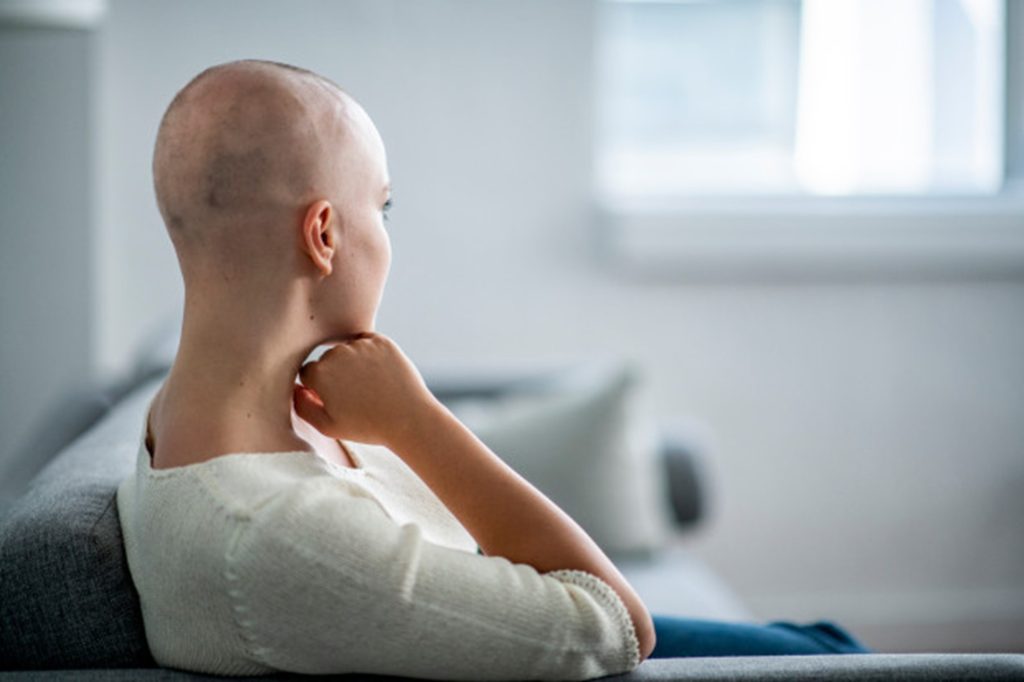
Hair Loss in Chemotherapy: Causes & Care Tips
Hair loss during cancer treatment is one of the most emotionally distressing side effects of chemotherapy, but it is important to remember that it is only temporary and indicates that the treatment is effective. While chemotherapy is necessary for destroying rapidly growing cancer cells, it also affects healthy cells, including hair follicles, resulting in temporary hair loss. The good news is that following treatment, the majority of people experience hair growth. In this article, we will discuss why chemotherapy causes hair loss, what to expect, how to care for your hair during treatment, and what regrowth looks like.
What Causes Hair Loss During Chemotherapy?
Chemotherapy targets cells that divide quickly, including healthy cells like those in your hair roots, as well as cancer cells. This results in hair loss in different areas of the body, which is medically referred to as chemotherapy-induced alopecia. It usually affects the
- Scalp
- Eyebrows & eyelashes
- Armpits & pubic area
Drug type, dosage, and treatment duration all affect the degree and location of hair loss.
Do All Chemotherapy Drugs Cause Hair Loss?
Not every chemotherapy drug results in hair loss. While some medications only result in slight thinning or no hair loss at all, others cause complete baldness.
Ask your oncologist if hair loss is likely with your specific chemotherapy treatment.
When Does Hair Loss Start During Chemotherapy?
Usually, hair loss starts two to four weeks following the initial chemotherapy treatment. It may:
- Come out in clumps
- Fall out slowly
- cause itching or soreness on your scalp
Hair loss generally continues during treatment and may last a few weeks after it ends.
Will Hair Grow Back After Chemotherapy?
Yes—you can observe hair regrowth commonly beginning 3 to 6 months after treatment ends. However, new hair may look different initially:
- Texture changes: you can observe curlier or straighter growth.
- Color shifts: Until pigmentation returns, some people have gray or lighter shades.
These changes are generally temporary and a sign of recovery.
Can Hair Loss Be Prevented During Chemotherapy?
There’s no other way to stop hair loss during chemotherapy. However, some alternatives may help reduce its degree of severity:
- You may use Scalp cooling caps or cold caps. It can narrow your blood vessels and reduce drug delivery in the scalp, lowering chemo exposure to hair follicles.
- Be Gentle with your hair by avoiding harsh products or heat-styling tools.
Remember, these methods are not effective for everyone; it is advised to consult your healthcare provider first before trying them.
Natural Oils and Products After Chemotherapy
Your scalp is often sensitive during hair regrowth. To avoid irritability:
- Use gentle baby shampoos or fragrance-free cleansers.
- Avoid strong chemicals or hair dyes.
- Avoid using minoxidil unless advised by your doctor—it may irritate the healing scalp.
- Focus on a healthy, nutrient-rich diet to support hair regrowth.
How to Care for Hair Before, During & After Chemotherapy Treatment
Before Chemotherapy:
- You may get a short haircut to make thinning less noticeable.
- Do not color, perm, or use heat tools.
- If you want to wear head coverings, such as scarves, wigs, or turbans, plan accordingly. Insurance may cover wigs if prescribed.
During Chemotherapy:
- Wash hair gently and only when necessary.
- Use a soft brush or comb.
- If heeding makes you uncomfortable, consider shaving your head.
- Protect your scalp from sun exposure and cold weather by using hats, scarves, and sunscreen.
After Chemotherapy:
- Keep yourself calm and composed, as new hair is fragile.
- Don’t use coloring or chemical treatments, and avoid tight hairstyles.
- Continue using gentle shampoos and limit heat styling.
Emotional Support: How to Cope with Hair Loss?
Hair loss can affect self-esteem and emotional health. Consider:
- Speaking with a support group or a counselor.
- Enhancing your confidence with accessories or makeup.
- Reminding yourself that hair loss is a temporary symptom that indicates your healing and fighting
Also Read: Immunotherapy vs. Chemotherapy: What’s the Difference
Conclusion
Hair loss during chemotherapy can be difficult to manage, but with the right information and preparation, you can reduce this side effect substantially. Understanding the causes, timing, and care strategies can help you feel more in control of your treatment journey. Always consult your healthcare provider for a personalized treatment plan, especially if you’re exploring options like cold caps or hair regrowth treatments. Remember, your healthcare team is a valuable resource for support and guidance tailored to your specific needs.
FAQs
Can I dye my hair during chemotherapy?
No, it is best to avoid dyeing, bleaching, or applying any chemical treatments to your hair while undergoing chemotherapy, as these can weaken your hair and scalp.
How soon will my hair begin to grow back after chemotherapy?
Hair usually starts to regrow a few weeks after treatment ends, with noticeable growth within 3 to 6 months.
Will my hair look the same when it grows back?
Your new hair may have a different texture, color, or curliness at first, but only for a temporary time.
Can scalp cooling caps help prevent hair loss during chemotherapy?
For certain individuals, scalp cooling caps can lower their risk of hair loss; however, it can vary largely from person to person, even with the same drug, due to biological differences.
Is it normal for my scalp to feel tender during hair loss?
Yes, many people experience scalp tenderness or itchiness as their hair falls out during chemotherapy.
Should I cut my hair short before starting chemotherapy?
Cutting your hair short can make hair loss less noticeable and may make the transition easier if you experience significant hair loss.
Is there a natural way to help with hair regrowth after chemotherapy?
While no natural remedy is specified, focus on a nutrient-rich diet to promote hair regrowth, as proper nutrients are necessary building blocks for healthy hair.
- Understanding Low Dose Immunotherapy, How It Works Side-Effects & More
- What’s driving higher colorectal cancer rates in young adults?







